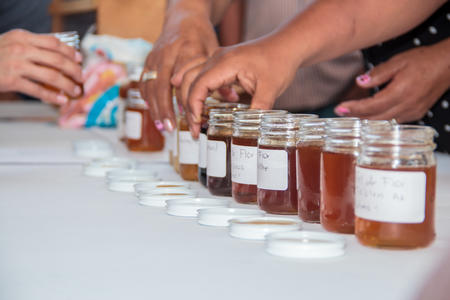Media Release
Northern Territory Government
NT Health Don’t get stung – box jellyfish season has arrived
1 October 2021
The stinger season officially starts in the Northern Territory today, with venomous box jellyfish more likely to be in the water up until the end of May next year.
Royal Darwin Hospital Professor of Medicine, Bart Currie, said Territorians and visitors must be highly vigilant around coastal waters in the coming months, as box jellyfish stings cause excruciating pain and can be fatal.
“The major box jellyfish can be almost invisible in the water. It has 40 or more tentacles – each of which are covered in millions of stinging cells – so the best advice is to stay out of the sea,” Professor Currie said.
“It’s important to remain aware even at the water’s edge and in tidal creeks, as these box jellyfish prefer calm conditions. People launching boats or other water craft should take extra care.
“Most of the severe and fatal stings in the NT have occurred as soon as a person entered the water, or soon afterwards in the shallows.
“If you have to get in the water, ensure you cover up with a stinger suit or a shirt and long trousers,” Professor Currie said.
Children are especially at risk of the effects of being stung, given their small body size and greater exposure in shallow water.
“There have been 14 deaths from box jellyfish stings along the NT coast between 1975 and 2021 – all of whom were children,” Professor Currie said.
Each year about 40 people present to Top End health facilities with jellyfish stings.
“If stung, you will feel immediate pain and within minutes, white welts will appear where the tentacle touched the skin,” Professor Currie said.
“These welts change to red whip-like lines and subsequent skin death may lead to permanent scarring.
“Box jellyfish venom can quickly enter the blood stream and may affect the heart, causing irregular heartbeat and, in worst case scenarios, cardiac arrest and death.”
Treatment for jellyfish stings
Immediate first aid for a jellyfish sting is important and the victim may need CPR.
If a jellyfish stings occurs:
Remove the person from the waterCall for help – call 000Assess the person and start CPR if neededPour vinegar on the area of the sting to stop further discharge from the stinging cells – do not wash with fresh waterIf vinegar is not available, pick off any remaining tentacles – the skin on the finger pads and palm is thicker so any stinging will usually be minorSeek medical help and transport to hospital immediatelyFor local pain relief for less severe stings, ice or hot packs can be applied.








